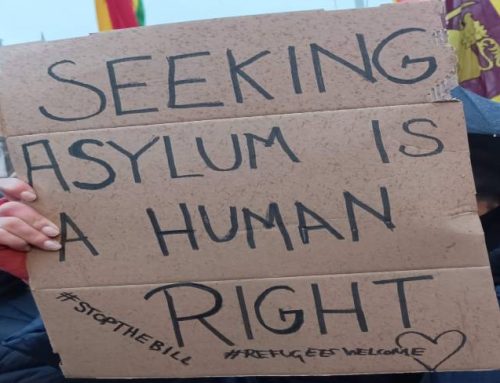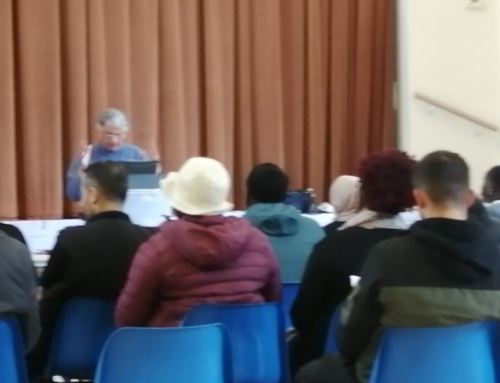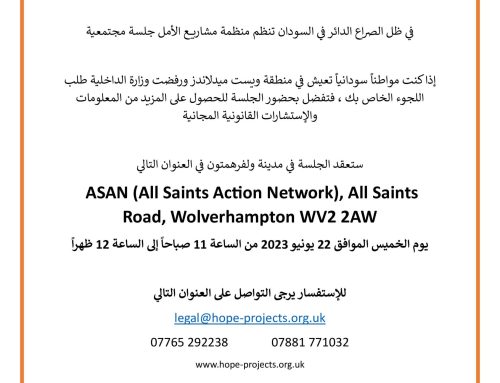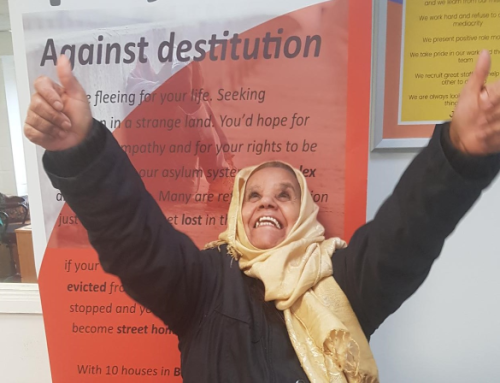Something is in the air at Hope Projects’ houses in Birmingham. That something has been under investigation and the charity’s response will coincide neatly with events all across the world.
When asylum seekers are refused asylum they are labelled as NRPF – No Recourse to Public Funds. Hope’s clients are barred from paid employment and benefits, and Hope’s houses get no subsidies so that every pound of expenditure comes from charity donations. It’s an excellent incentive to be efficient, even if it is for all the wrong reasons.
“Be prepared to be ruthless with the heating” says Dave Smith under the heading of ‘Six tips when housing destitute asylum seekers.’ It turns out that warm houses and high heating costs are frequently discussed within the UK’s refugee organisations.
 Hope Projects’ eleven houses are an eclectic mix of ages and styles scattered across Birmingham. A detailed study has highlighted both the problems and the potential. “Our energy use is high due to our high occupancy rates – which is good – but the trouble is that some of the properties are quite inefficient. To add to the problem our residents are often unaware of what they can do to help,” says Hope’s Co-ordinator Phil Davis. “We’ve been looking at it hard and our carbon footprint is too high.”
Hope Projects’ eleven houses are an eclectic mix of ages and styles scattered across Birmingham. A detailed study has highlighted both the problems and the potential. “Our energy use is high due to our high occupancy rates – which is good – but the trouble is that some of the properties are quite inefficient. To add to the problem our residents are often unaware of what they can do to help,” says Hope’s Co-ordinator Phil Davis. “We’ve been looking at it hard and our carbon footprint is too high.”
Over the next few months Hope will undertake a series of energy efficiency improvements across the different properties. These include a cohort of bigger budget items such as new insulation, better heating controls and radiators, as well as a horde of minor alterations to drafty letter boxes, leaky taps, and lighting. Clothes dryers for each house are one basic item on the shopping list.
The lion’s share of the funds for all this good work has come from a generous grant by the Quaker Housing Trust, but Hope will be picking up many of the residual costs. Phil Davis says “we would love it if our supporters could help us to help the environment.”
Phil continues, “Hopes’ costs will come down, so we can redirect resources to helping more clients. Hope’s carbon footprint will be reduced which helps the climate, and our asylum seeker clients will get more reliable heating and better homes. It’s a triple win.”
Image courtesy of Canva and Phil Beardmore
















Leave A Comment
You must be logged in to post a comment.